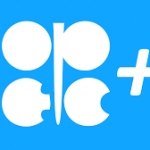
By Akintunde Oyedokun
Research Analyst
On Thursday, Brent crude fell 6.42% to $70.14, and WTI dropped 6.64% to $66.95—the steepest decline since 2022. OPEC+ announced a larger-than-expected output increase of 411,000 bpd in May, up from the planned 135,000 bpd.
Market fears intensified after U.S. President Trump imposed new import tariffs, raising concerns of a trade war. UBS cut its oil price forecast by $3 per barrel for 2025-26. A surprise 6.2-million-barrel rise in U.S. crude inventories added to the downward pressure.
UK Services Sector Grows, But Rising Costs, U.S. Tariffs Dampen Outlook
The UK’s services sector expanded in March, with the S&P Global Services PMI rising to 52.5 from 51.0 in February, driven by improved order books and a recovery in European demand.
Despite this growth, businesses faced pressures from rising wages, payroll taxes, and concerns over U.S. tariffs. While job cuts persisted for a sixth month, the pace of layoffs slowed. Input costs increased at their slowest rate this year, helped by lower transport expenses. The composite PMI, which includes manufacturing, climbed to 51.5, signaling modest economic growth.
Canada Posts C$1.52bn Trade Deficit In February As Exports Slide
Canada recorded a C$1.52 billion ($1.08 billion) trade deficit in February as exports dropped 5.5%, led by declines in energy products and motor vehicles, while imports rose 0.8%. Statistics Canada attributed some data adjustments to new border agency software.
Analysts had expected a C$3.55 billion surplus, but exports fell to C$70.11 billion from C$74.21 billion in January, while imports edged up to C$71.63 billion.
South Africa’s Private Sector Faces Prolonged Contraction
South Africa’s private sector contracted for the fourth consecutive month in March as economic uncertainty dampened output and sales, an S&P Global survey revealed.
The PMI fell to 48.3 from 49.0 in February, marking its second-lowest level since July 2023. Businesses cited declining new orders due to weak consumer spending and political concerns, though African markets showed slight demand growth.
Nigeria, Japan Launch Startup Investment Fund
Nigeria and Japan have launched a venture capital fund to support startups with Naira-based investments, reducing currency risk and providing long-term financing.
The fund, backed by the Nigeria Sovereign Investment Authority (NSIA) and Japan International Cooperation Agency (JICA), aims to boost private investments and address forex volatility.
This partnership strengthens Nigeria-Japan ties and supports Nigeria’s economic growth agenda.











